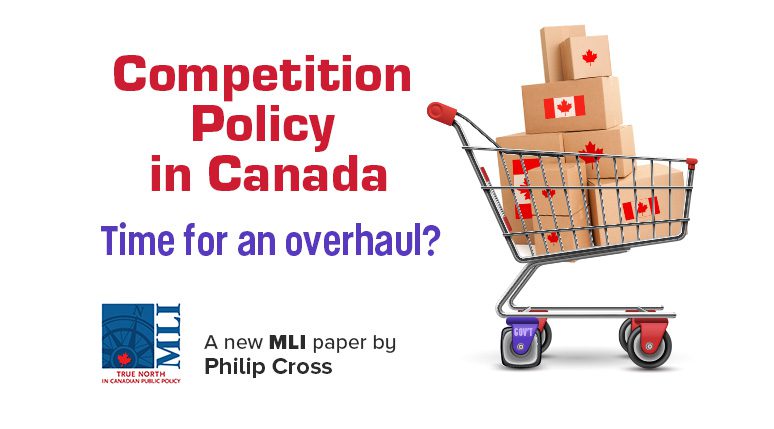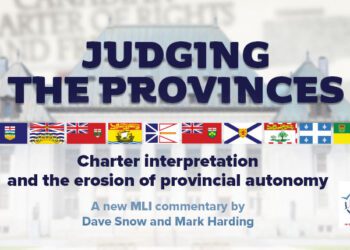By Philip Cross
April 5, 2023
Executive Summary
The federal government is currently conducting consultations on whether its competition policy needs to be updated. The reasons for the interest in reviewing competition policy are clear. For some time, the dominance of a few large technology companies in their specific markets has raised concerns about whether competition is being throttled. But would enacting and enforcing stricter competition policy be necessary or helpful?
Two tests would help determine the answer. One is demonstrating that more rules governing competition in Canada will actually improve outcomes for customers and boost innovation in a particular industry. The other is ensuring that changes to competition policy will improve overall economic performance and will not reinforce the malaise currently afflicting Canada’s business community.
There are two fundamentally different approaches to competition policy. One of them, the Chicago School, argues that the focus of such policies should be solely on “consumer welfare.” Firm size or market dominance is not important to the Chicago School as long as it is easy for competitors to enter the marketplace. Moreover, it is difficult to define the boundaries of a specific market: at some point, everyone (including governments) are competing for the customer’s dollars or time.
The second approach to competition policy, the European Union approach, perhaps puts “too much emphasis on incumbent firms (making sure that no incumbent firm acquires a dominant position) at the expense of entry considerations,” according to economist William Baumol of Princeton University. So antitrust regulators who focus on the market share of a dominant firm end up penalizing it for being exceptionally productive and efficient. Yet productive and efficient firms can provide better products that people want to buy – and at lower costs.
The question needs to be asked whether governments are serious about fostering more competition in Canada’s economy when their extensive regulations and other policies insulate many sectors from more competition. Canada is particularly prone to government regulation of competition. There are large segments of Canada’s economy where competition is limited, especially by restrictions on the entry of foreign firms.
Canada cannot afford any more government initiatives that undermine the performance of its business sector. The country currently suffers from an ongoing problem of chronic slow growth and weak business investment. Further, over the two decades starting in 2000, Canada’s total factor productivity fell 0.6 percent, ending decades of sustained growth and leading to a slowdown of overall growth. The OECD recently forecast that Canada would have the worst real GDP per capita growth among its 29 member nations between 2020 and 2060 because of its low productivity growth and weak capital investment.
Unfortunately, there are all too many examples of governments fostering an anti-business attitude in Canada. The most recent is the Trudeau government’s so-called “green transition” policy encouraging the shift of workers from the oil and gas industry to renewable or green energy projects. Stoking the notion that oil and gas production is in terminal decline misses the opportunity to build public support for the attempt by energy producers, notably in the oilsands, to substantially reduce emissions with the goal of becoming net-zero producers by 2050.
In an environment already hostile to business success, a move by policy-makers to tighten the enforcement of competition laws will be interpreted by the business community as yet another attack on business by governments in Canada. There is little point in changing Canada’s Competition Act without broader changes in government policies and attitudes to business. The greater hindrance to competition in Canada is the behaviour of governments, not of firms. If competition regulations can force a change in business structures because they harm consumers, then they should also be empowered to correct government actions that clearly favour producers at the cost of consumers. Improving these conditions rather than changing competition policy would increase competition in the marketplace.







